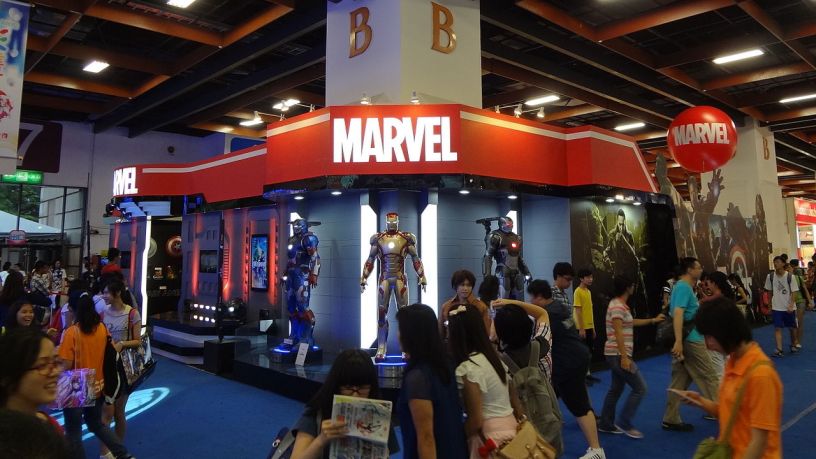The Hollywood Reporter reports that Marvel is going to be changing up its paper-plus-digital comics bundling program, starting in February. Instead of offering a code to download the digital version of the current issue of select Marvel comics, it will be offering codes to download digital versions of two back issues.
“Marvel is continuing our commitment by offering our fans the best value in comics along with honoring our cornerstone of the comic book industry — the retailers,” said David Gabriel, Marvel Publishing’s senior vp sales, in a statement about the program. “Our intent in evolving our digital code program is to offer our fans more value per dollar spent. Replacing the free digital copy, our bonus digital comics will offer fans free entry points for current on sale collected editions and, in turn, invite additional and repeat traffic into our trusted retailers.”
The article seems to imply those back-issues will come instead of the free digital version of the print issue. Some comics purchasers were apparently reselling the digital code to help subsidize the $3.99 price of Marvel print issues, which is $1 higher than DC’s price per issue. It’s unclear whether they’ll be able to do that with back issues, which will already be available via the Marvel Unlimited unlimited-read monthly subscription program. Also, those back-issues will apparently be the same back-issues across all comics sold that week, meaning that readers who buy multiple issues will not be getting as good of a deal anymore.
This reminds me of the bundled ebook CDs Baen used to offer with selected hardcover books. The deal allowed readers who bought, for example, the new Honor Harrington hardcover to get CDs containing ebooks of all the prior books in the series to catch them up, and made the hardcover purchase price an even better deal at the time.
Baen was willing and able to bundle CDs like that for the same reason it was able to sell them cheaply or give them away in its Free Library—not many people wanted ebooks at the time—but once the Kindle became a smash success, ebooks became salable items in their own right, and Baen signed a deal to get its ebooks into Amazon’s Kindle store, it no longer needed to do that anymore. (Though it has allowed The Fifth Imperium to continue hosting the files from all the CDs that it did offer.) It does still offer selected early-series books free via its Baen Free Library, however.
Are digital comics in the same place ebooks were pre-Kindle? Are they still waiting for their “Kindle moment” to get more readers interested? I’m not so sure. The reason ebooks never took off until the Kindle was that people by and large didn’t own that many ebook-readers—most e-ink readers were too complicated for ordinary people to figure out, smartphones were tiny, and tablets simply weren’t a “thing” until the iPad launched a few years later. The lack of any major company getting behind ebooks and pushing until Amazon did might also have been a factor.
But now, many people own tablets—and if the tablet screens generally aren’t as large as a comic book page, comic apps have adapted ways of showing just parts of the page at a time. And with the purchase of Comixology, Amazon has thrown itself wholeheartedly into its own comic book promotion. But even if enough people are reading digital comics to make running (or buying) digital comics businesses worthwhile, none of them seems to be successful enough to drive the others out of the market, so there is still plenty of reason for individual businesses to try to compete. Hence, Marvel’s back-issue offer.
The open question is whether this offer will make a difference. It might turn off the people who might have wanted to sell the digital code in order to save money on their print purchase, or who want to be able to read the same issue on their mobile devices—but it might also attract people who would like to read more comics for the same price. (At least, those who only buy one or two comics per week, given that the free back-issues will apparently be the same ones for all comics.) It remains to be seen whether more people will stop or start buying comics because of this change—and whether there are enough of either group to matter.


Interesting. Can you report more about the form of these downloaded files? Is there DRM that could one day cause your digital copies to vanish?
LikeLike